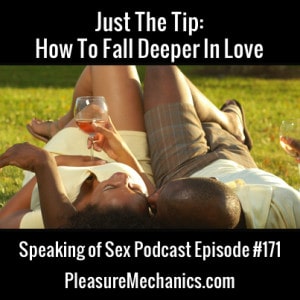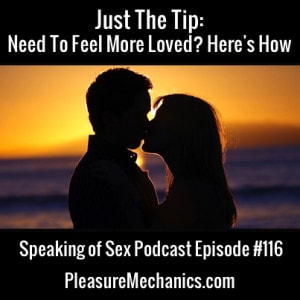Podcast: Play in new window | Download

Love is a verb – an action we must practice in an ongoing way. But “love” is also kind of vague, and the daily act of loving another human being is really a symphony of verbs that is constantly changing. So how do we get more specific about HOW we love and what actions are needed to feel loved and to be more loving?
In this podcast episode, we explore Esther Perel’s framework of the 7 Verbs of Love. Sex therapist and author Esther Perel offers these seven verbs as points of reflection to notice the specifics of how we love in our daily lives.
The 7 Verbs Of Love, offered by Esther Perel, are:
- to ask
- to take
- to receive
- to give
- to share
- to refuse
- to play
Check out Esther Perel’s blog post about the 7 Verbs Of Love here.
Listen to our interview with Esther Perel on Speaking of Sex here.
Enroll in our FREE online course, The Erotic Essentials, to begin laying a stronger foundation for a happier sex life, on your own terms.


 We just got back from a week long retreat in rural Canada.
We just got back from a week long retreat in rural Canada.